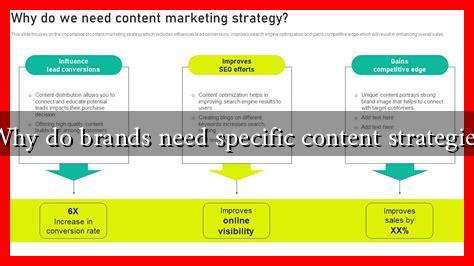-
Table of Contents
Why Do Brands Need Specific Content Strategies?
In today’s digital landscape, where consumers are bombarded with information from all directions, having a specific content strategy is no longer optional for brands; it is essential. A well-defined content strategy not only helps brands communicate effectively with their target audience but also enhances their overall marketing efforts. This article explores the importance of specific content strategies for brands, supported by examples, case studies, and relevant statistics.
The Importance of a Targeted Approach
Brands operate in diverse markets with varying consumer preferences and behaviors. A one-size-fits-all approach to content creation can lead to missed opportunities and ineffective communication. Here are some reasons why a targeted content strategy is crucial:
- Audience Understanding: A specific content strategy allows brands to understand their audience better. By segmenting their audience based on demographics, interests, and behaviors, brands can create tailored content that resonates with each group.
- Increased Engagement: Content that speaks directly to the needs and interests of the audience is more likely to engage them. According to a study by HubSpot, personalized content can lead to a 20% increase in sales opportunities.
- Brand Consistency: A well-defined content strategy ensures that all content aligns with the brand’s voice, mission, and values, fostering a consistent brand image across all platforms.
Building Trust and Authority
In an era where consumers are increasingly skeptical of brands, establishing trust is paramount. A specific content strategy can help brands position themselves as thought leaders in their industry. Here’s how:
- Educational Content: Brands that provide valuable, informative content can build authority. For instance, HubSpot’s blog offers a wealth of resources on marketing, sales, and customer service, establishing the company as a leader in inbound marketing.
- Case Studies and Testimonials: Sharing success stories and customer testimonials can enhance credibility. Brands like Slack use case studies to showcase how their product solves real-world problems, thereby building trust with potential customers.
Optimizing for SEO and Discoverability
A specific content strategy is also vital for search engine optimization (SEO). By focusing on relevant keywords and topics, brands can improve their visibility online. Here are some key points:
- Keyword Research: Identifying the right keywords helps brands create content that answers the questions their audience is asking. Tools like Google Keyword Planner can assist in this process.
- Content Formats: Different formats (blogs, videos, infographics) can cater to various audience preferences. For example, video content is projected to account for 82% of all consumer internet traffic by 2022, according to Cisco.
Measuring Success and Adapting Strategies
Another significant advantage of having a specific content strategy is the ability to measure success and adapt accordingly. Brands can track various metrics to evaluate the effectiveness of their content:
- Engagement Metrics: Analyzing likes, shares, comments, and time spent on content can provide insights into what resonates with the audience.
- Conversion Rates: Tracking how content influences purchasing decisions can help brands refine their strategies for better results.
Case Study: Coca-Cola’s Content Strategy
Coca-Cola is a prime example of a brand that has successfully implemented a specific content strategy. The company focuses on storytelling and emotional connections through its content. Their “Share a Coke” campaign personalized bottles with popular names, encouraging consumers to share their experiences on social media. This campaign not only increased sales but also fostered a sense of community among consumers.
Conclusion
In conclusion, a specific content strategy is essential for brands looking to thrive in a competitive digital landscape. By understanding their audience, building trust, optimizing for SEO, and measuring success, brands can create impactful content that drives engagement and conversions. As the digital world continues to evolve, brands that invest in tailored content strategies will be better positioned to connect with their audience and achieve their marketing goals.
For more insights on developing effective content strategies, consider exploring resources from HubSpot and Content Marketing Institute.

